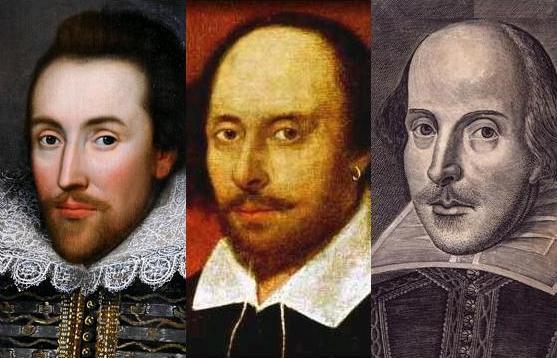
Did Shakespeare Write Shakespeare?
William Shakespeare: Playwright, poet, businessman and actor. Author of 37 plays that still resonate with audiences today. But did the man from Stratford actually put quill to parchment or was another, secret author, responsible for the Bard’s legacy?
Anti-Stratfordians
This authorship debate has raged since the 19th Century when clergyman James Wilmot set out to write a biography on the bard. Finding little evidence on Shakespeare’s life, he concluded that someone else must have written the plays. Today, this theory garners support from the aptly named ‘Anti-Stratfordians’ (e.g. those who do not believe Shakespeare of Stratford wrote the plays).
On the other side of the debate we have the ‘Stratfordians’. They believe that the William Shakespeare who travelled from Stratford-Upon-Avon to London is indeed the true author. This is substantiated by scholars who argue there is no real evidence to suggest otherwise. Indeed, historical records reinforce the claim and even Shakespeare’s contemporary writers never cast doubt that anyone other than Will could have written the plays.
Shakespeare’s Contemporaries
Fellow writers, such as Christopher Marlowe and Ben Johnson, came from similar backgrounds to Shakespeare, so it seems entirely plausible that the son of a simple glove maker could be equally capable of high literary prowess. Talent strikes anywhere, from a tanners’ son to nobility. Why then, shouldn’t Will of Stratford be blessed with a gift from god?
Well, Anti-Stratfordians argue that, whilst genius is not dependent on social rank, access to knowledge and experience is. They propose that the vast cannon of Shakespeare’s work demonstrates a knowledge of things far beyond someone from his background. With a limited education, how does the boy from Stratford create works demonstrating an innate understanding of the royal courts, the geography of countries ranging from Scotland to Italy, politics and the law; not to mention a vast knowledge of classical literature? Where would he get access to this information?
Cue the Anti-Stratfordian hypothesis that ‘ol Will was simply a ‘front man’, shielding the true identity of the writer. They believe a member of the nobility was “the real Shakespeare” and needed to keep their identity secret. Writing plays and hanging out with rapscallion actors would have severely damaged the reputation of one of noble birth, hence the need for a ‘mask’.
On the other hand, there are those tantalising the ‘lost years’, two periods spanning eleven years where Shakespeare disappears from the history books. Theories abound that this is when he accumulated the vast knowledge required to fill the plays with such minute detail. Was he a soldier, a spy? Was he serving at court or simply trudging the country as a teacher or an actor? Or, is it more plausible that Shakespeare was someone else? Someone of higher rank who had access to the courts, travel and a higher level of education? Perhaps we will never know. In the meantime, just like a theatrical who-done-it, here are the top three (un)usual suspects who just may have written the plays:
Sir Francis Bacon
Philosopher, writer, Attorney General and Lord Chancellor of England, he is the “Baconians’’ (not to be confused with some kind of anti-vegan) number one suspect. Additionally, he was ‘known to have been a concealed poet’ (www.francisbaconsociety.co.uk). Add in the high education, court position and penchant for travel and you have a hot prospect.
Edward de Vere (17th Earl of Oxford)
Oxfordians (yes, another group with ‘ian’ at the end of their name) came slightly later to the party. The theory was first proposed in 1920 by a Mr. J.T Looney (yes, really) and even garnered support from Sigmund Freud. De Vere was a lawyer, highly educated and boasted connections to the ‘luvvie’ world. A seasoned traveller, he also allegedly visited many of the places depicted in Shakespeare’s plays. Coincidence?
Christopher Marlowe
A playwright, spy and contemporary of Shakespeare. Marlovians (yes, still another organisation with a penchant for putting ‘ian’ at the end of things) believe he had the literary chops, access to court and travel experience to fit the bill. However, he was stabbed in the eye in 1593, dying long before Shakespeare ceased to write. A point Marlovians are quick to overlook, believing that he faked his own death.
Now you’ve heard all the claims, it’s down to you to decide who to believe…
